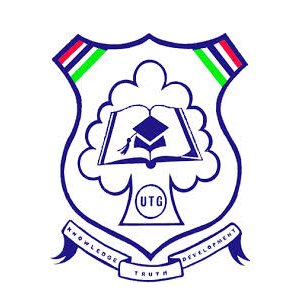Doctoral Programme Climate Change and Education
Overview
Climate change is scientifically complex, and is accompanied by economic, social and political ramifications. Article 6 of the 1992 United Nations Framework Convention on Climate Change (UNFCCC) urges the development and implementation of educational and public awareness programmes on climate change and its effects; it further urges parties to the convention to develop and implement education and training programs. Also, UNFCCC advocates for capacity building on climate change to be a priority in all regions of the world, especially in West Africa, through the facilitation of more national and regional activities to combat climate change adversities.
Objectives
The two years Doctoral Research Programme on Climate Change and Education aims to build the climate change expertise of students from ten West African countries in an inspiring, interdisciplinary and intercultural learning environment. Each year, ten to twenty students are admitted to the program. A special focus is laid on the capacity development of skills in communication, education and public relations. These skills are highly relevant for policy-advice, public awareness building on climate change, for the development of climate services, as well as for the implementation of adaptation programs. After the program, the graduates are well prepared to work as educational experts and communication officers for national and international agencies, the media, as well as for civil society and donor organizations. Some of them will continue their academic career in Education or Communication Sciences.
Curriculum
General modules of the GSP programme
- Statistics and Geo-statistics
- Atmospheric Science
- Climate Change Adaptation and Mitigation
- GIS and Remote Sensing
- Research Methodology 1
Special modules of the master’s programme
- Educational Challenges of Climate Change
- Climate Change Education for Sustainable Development
- Curriculum Development for Climate Change Education
- Teaching Methods for Climate Change Science
- Teaching Aids and Material Development
- Technology Enhanced and Distance Learning in Education 1+2
- Management and Delivery of Course Using an LMS
- International Legal Framework of Climate Change
- Public Policy Analysis
- Politics of Adaptation/ Climate Change Governance
- Climate Change and Water Resources
- Climate Change and Population Dynamics
- Climate Change and Public Health
- Climate Change and Agriculture
- Conservation and Natural Resources Management
- Eco-criticism
- Ecosystem Based Adaptation to Climate Change
- Disaster Risk Reduction and Climate Change Adaption
- Economics of Climate Change
- Research Methodology 2
- Basic Statistics
- Individual Field Research and Thesis Writing

University of The Gambia
North Bank Campus in Farafenni
The Doctoral Programme resides on a beautiful and inviting campus in the market town Farafenni, in the North Bank Region of The Gambia. The campus aims to serve as a role model for sustainability and climate-friendliness, as well as a work place for other WASCAL staff and students and knowledge pool for climate change related activities in The Gambia.
Facilities on Campus:
- Lecture halls
- Library and reading rooms
- Accommodation for students and lecturers
- Common room and sport field
- Offices and accommodation for guest researchers


